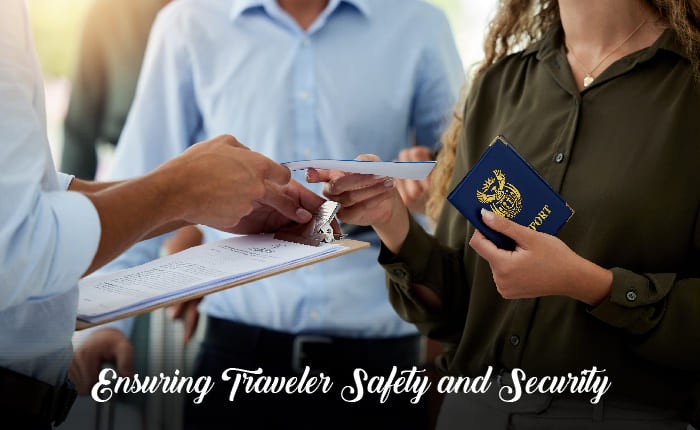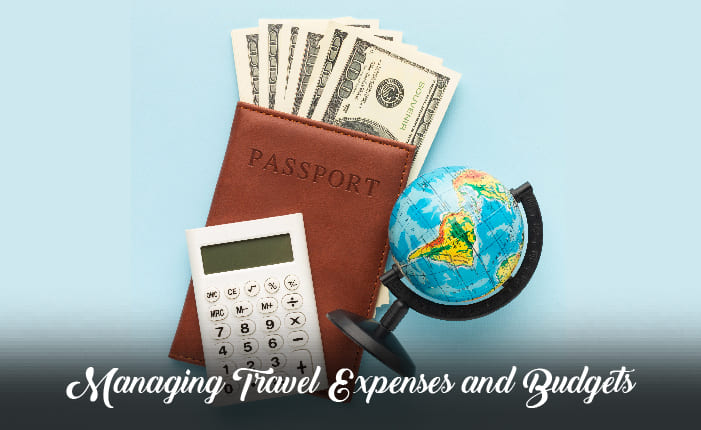These individuals are the untapped people behind each successful business trip. They ensure that workers travel safely, smoothly, and efficiently.
This blog will explore the many facets of the role corporate travel directors play. Also, we will highlight the role of corporate travel managers in governing corporate travel policies, bargaining with suppliers, making sure that travelers are secure, and much more.
Understanding the Corporate Travel Landscape
Corporate travel directors operate in an intricate ecosystem. They must navigate an environment shaped by fluctuating airline rates, varying hotel prices, and ever-changing travel rules. The job requires an in-depth understanding of travel, including flights and hotels used by corporate chains for company travelers. Also, they must be mindful of any geopolitical variables that might change travel plans due to strikes, natural disasters, or political turmoil.
Crafting and Implementing Travel Policies
Travel directors at companies often face one of their primary responsibilities: creating and implementing comprehensive travel policies. These policies serve as an essential reference point for employees of that business. Such policies provide coherence throughout an organization while simultaneously helping to reduce costs, prevent noncompliance or fraud risks, and lower compliance risk. Travel managers should continually update these policies to remain up-to-date with modern travel trends and developments.
Negotiating with Vendors for Cost Savings
Cost management is a vital component of managing travel for corporations. Managers of travel are charged with the responsibility of negotiating favorable rates from airlines, hotel chains, car rental firms, and various other businesses for their company's travel needs. By taking advantage of multiple trips they make with multiple vendors at once and bargaining hard, travel managers often obtain special discounted rates that individual travelers would never qualify for. They not only help cost less, but they also make sure that the employees get the highest service they can get during their travels.
Ensuring Traveler Safety and Security
Travel risk is ever-present, so corporate travel managers must prioritize guaranteeing the security and well-being of business travelers as a top priority. They must remain aware of international security threats as well as implement plans in case an incident should arise. These include monitoring security threats, supplying employees with essential information regarding travel security, and working with security agencies to ensure a rapid response to any incident. Furthermore, the travel manager should ensure their employees can access medical treatment and other vital amenities when traveling abroad.
Leveraging Technology for Efficiency
Technology plays an important function in contemporary enterprise management of travel. Travelers use various instruments and platforms to expedite the booking of flights, monitor expenses and ensure compliance with travel policies. As one example of such software for managing travel, it can assist travelers in quickly making reservations, planning itineraries, creating expense reports, etc. These tools not only improve effectiveness but also offer useful data that travel professionals can analyze to improve the travel program.
Managing Travel Expenses and Budgets
Financial management that is efficient and effective is at the heart of corporate travel management. The travel managers are charged with managing the budget for travel as well as ensuring that the trips are economical. They are responsible for tracking their expenses at a real-time pace as well as analyzing trends in spending and identifying areas where expenses could be cut. When they carefully manage expenses for travel, organizations avoid excessive spending while also ensuring that employees can travel safely and effectively.
Enhancing Traveler Experience
As much as safety and cost savings are of vital importance for corporate travel managers, travelers' overall satisfaction should also remain top of mind. They strive to make business travel as relaxing and pleasurable an experience as possible for employees. This means reserving the most convenient times for flights, making sure that accommodations can meet the needs of travelers, and offering support throughout the journey. An enjoyable travel experience could increase employee performance and satisfaction. This, in turn, benefits the organization.
Adapting to Changing Travel Trends
The industry of corporate travel changes constantly and new trends are emerging frequently. Managers of corporate travel must stay abreast of new changes to ensure their programs remain pertinent and efficient for their businesses. With the rise of bleisure tourism or sustainability becoming an increasing focus in travel decisions, managers need to remain flexible and innovative for clients. By staying abreast of developments within their field and using the best practices available, they can further optimize travel programs while adding greater value for clients.
Wrapping Up...
Corporate travel managers play a necessary role in guaranteeing the adequacy of business travel in organizations. They have a wide range of obligations in scope, from managing the budget and travel policies to guaranteeing the safety of travelers and improving overall satisfaction.
Utilizing their knowledge, negotiation abilities, and technological solutions, they aid companies in navigating the maze of travel for corporate clients while also achieving cost savings and maintaining employee satisfaction.
















